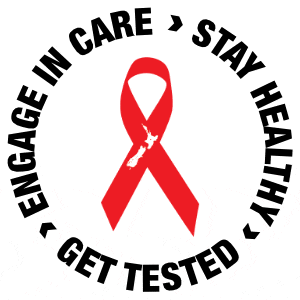As trans rights continue to face political backlash across the United States, a growing number of trans and gender-diverse Americans are contemplating or making moves from hostile states to more supportive ones.
A recent survey conducted by the Williams Institute at UCLA reveals that nearly half of trans, non-binary, and gender non-conforming people surveyed have either relocated to more affirming states, or are actively considering doing so.
The December 2024 survey included 302 participants, with over one-third identifying as people of colour and two-fifths earning less than $50,000 annually. Conducted just before the inauguration of Donald Trump, the study captured widespread concerns about healthcare access, discrimination, and exposure to hate crimes under the returning administration.
“Those with lower incomes were also more likely to want to relocate, even though they may lack the resources to do so,” the report noted.
Respondents who lived in less supportive local communities, both in terms of legal protections and broader social attitudes, were significantly more likely to want to move to a trans-affirming state.
Sanctuary States and Cost Barriers
When asked where they’d consider moving, participants named California, New York, Massachusetts, Minnesota, and Washington State as top choices due to their more progressive laws and LGBTQ+ support systems.
Approximately 23% of respondents had already made such a move, while 48% had either relocated or were planning to. For many, financial challenges were the biggest barrier, especially for those in full- or part-time jobs with limited flexibility.
Some participants even considered international moves, though concerns about visas, healthcare access, and immigration laws made that route less accessible. Notably, changes under Secretary of State Marco Rubio have made it more difficult for transgender people to obtain visas with accurate gender markers, further complicating such efforts.
Travel within the U.S. has also been affected. About 70% said they are less likely to travel to anti-trans states, with nearly one in six cancelling travel plans altogether. Approximately 30% said they travel less frequently since the Trump administration returned to office.
Community in the Face of Displacement
Despite the challenges of uprooting one’s life, many trans people have found solidarity and resilience in their new communities.
Trans journalist Mira Lazine, who moved from Cincinnati to Minneapolis, shared with LGBTQ Nation:
“Probably like 80% of the queer people I’ve met aren’t originally from Minnesota, so we’re all like, ‘Yeah, we need community — let’s build one.’”
And it’s not just others. Personal stories like mine, from Arin Waller, echo this sentiment.
I moved from the conservative Midwest to Seattle after growing increasingly unsafe in public and unseen in my community. The first few days were isolating, but I quickly discovered trans-friendly spaces—bars, clubs, and support groups—where I felt welcome.
People often warn newcomers about the “Seattle Freeze”, a stereotype that locals are socially reserved. But coming from a region known for its own version—“Minnesota Nice,” often passive-aggressive and overly polite—it didn’t feel unfamiliar. As an introvert, I even found comfort in that shared silence.
The Bigger Picture
This shift in migration patterns reflects more than personal preference—it signals a growing refugee crisis within the LGBTQ+ community, driven by state-level policy disparities and federal rollbacks.
The Williams Institute has previously highlighted the real-life consequences of anti-trans policies, such as increased risk of violence for trans people forced to use restrooms that don’t align with their gender identity.
At a time when national protections are weakening, trans Americans are voting with their feet, seeking refuge in states that affirm their right to exist. But without meaningful legal reform and financial support, many remain trapped in hostile environments.
The message from those moving is clear: safety isn’t just about survival—it’s about the freedom to thrive.























